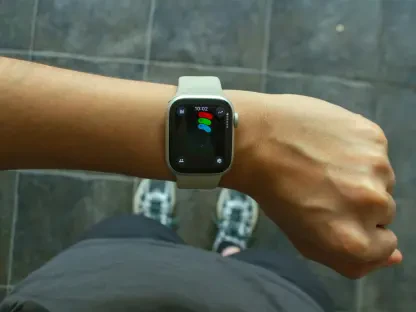In the heart of Providence, Rhode Island, a labor dispute at Butler Hospital, a key psychiatric facility under Care New England, has captured widespread attention as nearly 700 unionized workers continue their strike. These employees, represented by SEIU 1199 New England, have been off the job since mid-May, demanding better wages and improved working conditions, especially for the lowest-paid staff in roles like maintenance and dietary services. The standoff has not only disrupted hospital operations but also spotlighted broader challenges in the healthcare sector, where balancing worker compensation with fiscal constraints remains a persistent struggle. As both sides prepare to return to the bargaining table with a federal mediator, the stakes are high for workers, management, and the community relying on critical psychiatric care services.
Core Issues Driving the Conflict
Wage Disparities at the Forefront
The primary sticking point in this ongoing dispute revolves around wages, with a significant divide between what the union demands and what hospital management has offered. Union leaders rejected a “revised last, best, and final” proposal on July 11, arguing it fell short of providing a living wage for lower-tier employees. Workers like Robert Neves, a 67-year-old environmental services technician earning just $17 an hour, have voiced the harsh reality of struggling to afford basic necessities despite years of service. This sentiment echoes across the striking workforce, highlighting deep frustration with compensation that fails to match the cost of living. The union’s push for immediate financial relief underscores a broader call for equity, emphasizing that fair pay is not just a benefit but a necessity for those on the front lines of healthcare support.
Management, on the other hand, presents a different perspective on compensation, pointing to market comparisons and overall benefits packages. According to hospital spokesman Mike Raia, the lowest starting wage under the current union contract stands at $18.03 per hour, which is 20% above Rhode Island’s minimum wage. When factoring in benefits, total compensation could reach nearly $75,000 under the proposed agreement. This discrepancy in viewpoints reveals a fundamental disagreement on what constitutes fair pay, with management focusing on broader financial packages while workers prioritize take-home earnings. The gap between these positions has fueled tensions, making the upcoming negotiations critical for finding common ground on this pivotal issue.
Working Conditions and Worker Morale
Beyond wages, the strike also sheds light on working conditions that many employees find unsustainable, contributing to low morale among staff. For roles such as dietary and maintenance workers, the physical and emotional toll of their jobs is compounded by what they describe as inadequate support from management. Long hours, understaffing, and limited resources have created an environment where workers feel undervalued despite their essential contributions to patient care. The union argues that better conditions—ranging from safer workplaces to reasonable workloads—are just as crucial as pay raises, as they directly impact the quality of service provided at the hospital.
This dissatisfaction has not only driven workers to strike but also raised questions about retention and recruitment in an already strained healthcare system. Since the strike began, job openings at Butler Hospital have surged from 100 to 375, signaling a growing challenge in maintaining a stable workforce. Union members like Dawn Williams, a registered nurse, express cautious hope for change but remain resolute in their demands for comprehensive improvements. The personal and financial sacrifices made by strikers reflect a collective determination to address these systemic issues, even as the prolonged action takes a toll on their livelihoods. Resolving these concerns will require more than financial adjustments; it demands a cultural shift in how essential workers are supported.
Impacts and Future Outlook
Operational Strain on Psychiatric Care
The strike’s impact on Butler Hospital’s operations has been profound, with capacity reduced by approximately 35% as 70 of its 197 beds remain closed. This reduction has placed immense pressure on Rhode Island’s psychiatric care services, where demand often outstrips supply even under normal circumstances. Patients in need of critical mental health support face longer wait times or must seek care elsewhere, exacerbating an already fragile system. Additionally, the hospital has incurred significant costs by hiring temporary out-of-state replacement staff, a move that has further strained budgets while failing to fully mitigate the service disruptions caused by the strike.
Compounding the operational challenges is the hospital’s decision to cut off health benefits for striking workers and advertise for permanent replacements, a legal option under federal law for economic strikes. This has intensified tensions, as workers fear losing their positions entirely. The union’s complaint to the National Labor Relations Board alleging bad-faith bargaining by management adds another layer of complexity, with potential legal ramifications hanging over the dispute. The outcome of this complaint could influence whether strikers receive additional protections, but for now, the immediate focus remains on the operational fallout and its ripple effects on community health services.
Financial Constraints and Negotiation Prospects
Butler Hospital’s financial situation adds a critical dimension to the dispute, as the facility relies on Medicare and Medicaid reimbursements for 70% of its funding. These public programs often pay lower rates than private insurers, creating a tight budget that hospital President Mary E. Marran warns could face further pressure from proposed federal policy changes. Management argues that wage increases must be carefully balanced against these fiscal realities to avoid compromising the hospital’s long-term viability. This perspective contrasts sharply with the union’s focus on immediate worker needs, illustrating the complex interplay between economic constraints and labor demands in publicly funded healthcare settings.
As negotiations resume with a federal mediator, there is a shared recognition of the need for resolution, though the path forward remains uncertain. Both sides have engaged in informal discussions since the last formal offer, but entrenched positions on wages and conditions suggest that compromise will not come easily. The union remains steadfast in its resolve to secure a living wage for all members, while management must navigate budgetary limits and operational needs. The mediation process offers a glimmer of hope, but the diversity of perspectives—from workers seeking urgent relief to administrators citing systemic challenges—underscores the difficulty of crafting an agreement that satisfies all parties.
Steps Toward Resolution
Looking back, the labor dispute at Butler Hospital revealed deep-seated issues in healthcare compensation and working conditions that demand urgent attention. The strike, which disrupted psychiatric care across Rhode Island, served as a stark reminder of the critical role unionized workers play in sustaining essential services. Both management and union representatives showed a willingness to engage by returning to the bargaining table, a step that marked progress despite lingering disagreements.
Moving forward, actionable solutions must prioritize bridging the wage gap through phased increases that address immediate needs without jeopardizing the hospital’s financial stability. Additionally, investing in improved working conditions could help rebuild trust and morale among staff, ensuring long-term retention. Policymakers should also consider bolstering public funding for facilities like Butler Hospital to alleviate budget constraints. These steps, if pursued collaboratively, could transform this conflict into an opportunity for systemic improvement, benefiting workers, patients, and the broader community in the years ahead.









